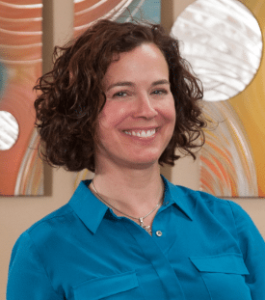Curiosity—The Power of Asking Questions
March 11, 2015Dr. Leslie Pitner
If you ever get the chance to stand in front of a room of seven-year-olds, you should take it! I spoke to a class of second graders several months ago as part of National Reading Month. I read a couple of books to them and left about fifteen minutes at the end of my presentation for them to ask questions about the books I read and the work I do as an orthodontist. Once I opened the floor to questions, almost every hand shot immediately into the air! And the range of questions was remarkable — from “Why do teeth grow?” (Answer – we really don’t know – it’s one of the unanswered questions in science) to “Why does my grandpa take his teeth out at night?” (Answer – because he doesn’t have any teeth – and that is why you should brush twice a day!). I left the school both exhilarated and exhausted, but also inspired by the kids’ amazing curiosity. Sadly, so many of us seem to lose our unbridled curiosity somewhere between age seven and eleven. For example, I also speak to eighth graders quite often and it is rare to hear questions from them unless a brave soul starts things off. Where does our curiosity go and what do we lose by not exercising it?
Psychologist Todd Kashdan of George Mason University has spent ten years studying curiosity and its role in a rich and fulfilling life. As he defines it, curiosity is simply noticing and asking questions about things we find interesting. In his research he has found that curious people experience better overall health as they age. Curiosity is also correlated with higher intelligence, better relationships, and higher levels of meaning and happiness in life. So if curiosity is such a powerful force for the good things in life, how do we return to our seven-year-old self and rebuild the innate desire to ask questions?
One of Dr. Kashdan’s recommendations is that we learn to thrive on uncertainty. Surprise is one of the most enjoyable parts of life. And one of the best ways to experience uncertainty in a non-threatening way is to ask questions and listen for answers. Don’t assume you already know the answers – even if you are talking to your spouse or closest long-term friends. My husband and I were at dinner on vacation recently and somehow we got to talking about things that really scare us in life. I told him something (I can’t even remember what it was now) and he immediately said, with fascination, “How have I known you for 25 years and not known that about you?”
We can always learn more: about the people around us and about the topics we think we already know. In fact, psychologists Arthur and Elaine Aron at the University of California-Berkeley have developed a series of 36 questions that they have shown creates a sense of closeness and intimacy, even among strangers. The questions are simple open-ended questions such as:
–“Given the choice of anyone in the world, whom would you want as a dinner guest?”
–“Do you have a secret hunch about how you will die?”
–“If you could wake up tomorrow having gained any one quality or ability, what would it be?”
You can find all 36 questions in an iPhone app at: http://www.nytimes.com/2015/02/13/style/the-36-questions-on-the-way-to-love.html.
I haven’t tried all 36 questions with anyone yet, but it is on my list of to-dos for my husband and me this weekend. So try these questions out on someone you love or want to know better. See how the power of curiosity can gradually create some surprises and change your life.
Kashdan, T. (2009). Curious?: Discover the Missing Ingredient to a Fulfilling Life. New York: William Morrow.
About Dr. Leslie Pitner
Dr. Pitner has built a reputation as one of the most innovative orthodontists in the Southeast. Her practice, Pitner Orthodontics, serves the Columbia and Chapin communities, but she has patients coming from all over the US. Leslie Pitner majored in art and received her undergraduate degree from Williams College in 1990. She completed her master’s degree in art history at the University of Pennsylvania in 1995. She then attended the University of North Carolina School of Dentistry and graduated with honors. Her training in art directly translates to her orthodontic practice by allowing her to utilize her eye for beauty and detail and bring that passion to each patient’s smile.
While in practice, Dr. Pitner completed a unique master’s degree program in positive psychology at the University of Pennsylvania. She uses this element of her education to encourage patients to grow in their strengths through the challenges of orthodontics and enjoy the positive power of a smile. Dr. Pitner has broad interests from traveling and public speaking to driving her own race-car. www.drpitner.com














